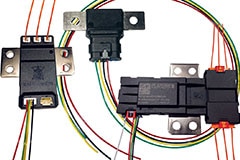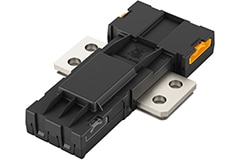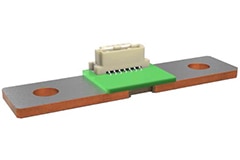This webinar will provide a comprehensive look at the details of current measurement in a high-voltage battery management system use case.
Isabellenhuette's Precision measurement group offers a range of high-accuracy DC smart sensors specifically designed for use in Battery Disconnect Units (BDUs) of large Lithium-Ion Battery systems.
The white paper uses realistic calculation examples to clearly illustrate how a data sheet can be used to choose the appropriate resistor and what information is important.
This video will provide engineers and designers with many options available from Isabellenhuette—and to highlight some of the unique features of our one-of-a-kind current-sensor solutions used in battery management systems and other applications.
Our extensive line of high-current solutions is supporting the growing need for higher current levels, increased battery capacities, and faster/remote charging.
Isabellenhüette resistors for aerospace applications.
For aerospace innovators who are looking to deliver ultra-long-term stability in their circuitry, Isabellenhüette’s wide range of space-certified options.
This brief video aims to provide engineers and product designers with an overview of the many options available from Isabellenhuette—and to highlight some of the unique features of our one-of-a-kind surface-mount resistors.
Multiple precision resistors in the 2 to 6 mOhm range establish Isabellenhüette as a preferred choice for both innovation and value.
Top UAV innovators are turning to Isabellenhüette to help build battery management solutions that deliver precision, power, and value.
Shunt Based Current Sensing reduces both costs and complexity in an elegant solution.
Isabellenhüette supports the effort with “smart components” and a streamlined one-product solution to keep costs manageable.
Smart shunt solutions pack more performance into tight footprints with pricing and design that helps the bottom line too.
Isabellenhüette high-current sensing solutions for electric vehicles brochure.
The drive systems in electric vehicles require higher voltages and more electrical energy than in conventional cars with an internal combustion engine.















